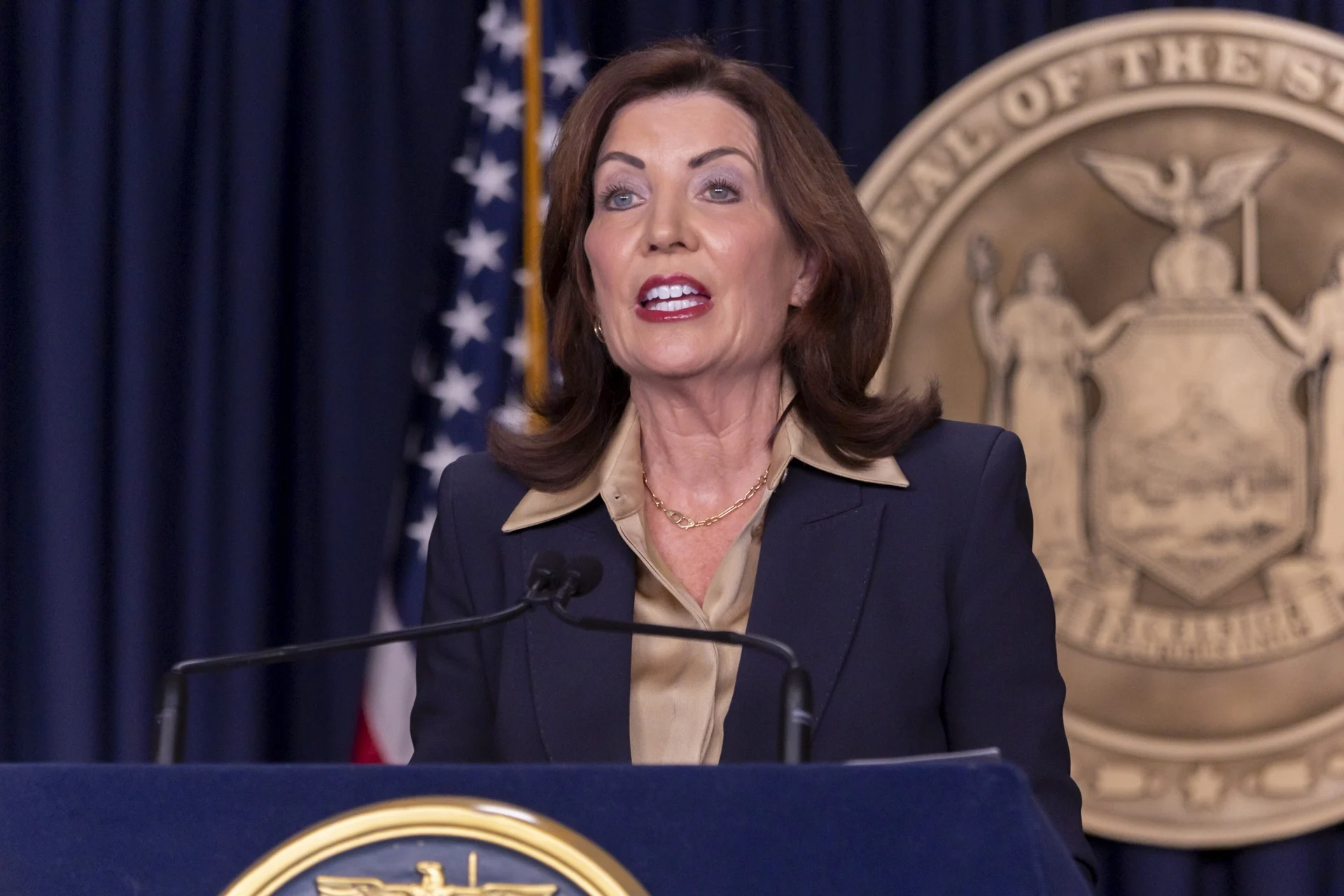International
Putin says Russia will not ‘meddle’ in Afghanistan
AFP
President Vladimir Putin said Tuesday Russia would not interfere in Afghanistan and that Moscow had learned from the Soviet occupation of the country, a week after the Taliban swept back into power.
“We’re not going to meddle in Afghanistan’s domestic affairs or involve our military in a conflict where everyone is against each other,” Putin said at a gathering of officials from the ruling United Russia party.
“The Soviet Union had its own experience in this country. We have learned the lessons we needed,” he said.
Moscow invaded Afghanistan in 1979 to support an Afghan communist government in conflict with Muslim guerrilla fighters.
The decade-long war there left up to two million Afghans dead, forced seven million more from their homes and led to the deaths of more than 14,000 Soviet troops.
Putin’s comments came after Russia’s Foreign Minister Sergei Lavrov said US forces were “pawning off” Afghans fleeing the Taliban to neighbouring Moscow-allied Central Asia.
On a visit to Hungary, Lavrov said the United States was trying to convince “several Central Asian countries” to take in Afghans who previously worked with US forces in the now Taliban-controlled country.
He alleged that Washington tells the countries the Afghans will only be there temporarily.
“They say it’s for a few months because they need time to make them visas,” Lavrov said at a press conference with his Hungarian counterpart in Budapest.
“Afghans who worked with US forces were probably security checked inside out. Why do you need two more months to give these people a visa?” he asked, accusing the United States of a lack of respect for Central Asian nations.
Around 1,500 Afghans have crossed into neighbouring Uzbekistan after the Taliban takeover and are living in tents near the border, according to the Afghan embassy in Tashkent.
Putin complained last week about Western countries trying to place Afghan refugees in Central Asian countries “before obtaining visas to the United States or other countries.”
Putin has warned against an influx of refugees from Afghanistan, saying militants could enter Russia under the guise of seeking asylum.
Several former Soviet republics in Central Asia share a border both with Afghanistan and Russia, he told officials on Sunday.
Moscow has been cautiously optimistic about the new leadership in Kabul.
The Kremlin said Tuesday it was “attentively watching” the “disagreements” on whether to extend an August 31 deadline for the complete withdrawal of US troops from Afghanistan.
International
New York Announces First 2,000 Seats in Universal 2-K Program

The Governor of New York, Kathy Hochul, and New York City Mayor Zohran Mamdani took another step today in their universal early education agenda by announcing the communities that will have access to the first 2,000 seats in the new 2-K program this fall — an initiative backed by a $73 million investment.
The funding is part of the $1.2 billion package previously unveiled by Hochul to strengthen child care and early childhood education across the city, one of the key campaign promises of the now Social Democratic mayor.
At the time of the announcement, the governor also outlined additional funds to reinforce the existing 3-K early education infrastructure, a program launched under former Mayor Bill de Blasio (2014–2021).
When the 2-K initiative was introduced in January, Mayor Mamdani explained that its first phase would offer 2,000 seats, with the goal of eventually expanding into a universal program — a commitment supported by the governor.
State investment in child care and preschool services is expected to increase to $4.5 billion by fiscal year 2027.
Among the first communities set to benefit from the 2,000 seats are Upper Manhattan and Inwood — areas with large Dominican populations — as well as Fordham and Kingsbridge in the Bronx, a borough with a Latino majority.
In East Brooklyn, Canarsie, Brownsville, and Ocean Hill will also be included. Meanwhile, Ozone Park and the Rockaways are among the neighborhoods that will see the rollout of the 2-K program.
International
Warner Bros. Developing First ‘Game of Thrones’ Movie With ‘Andor’ Writer

Warner Bros. is developing the first feature film based on the hit saga Game of Thrones, with Beau Willimon — screenwriter of Andor — attached to direct, according to a report published Tuesday by Page Six.
The project, currently in early development, will focus on the conquest of King Aegon I Targaryen. A separate television adaptation centered on the same historical storyline within the franchise is also in early stages at HBO.
However, the outlet noted that it remains unclear whether the film will move forward following the recent acquisition of Warner Bros. Discovery by Paramount Skydance.
If the merger is finalized, the movie could potentially be shelved, although that scenario appears unlikely given that the Game of Thrones franchise remains one of HBO’s most valuable and beloved properties.
After six seasons adapting the work of George R. R. Martin, the platform expanded the universe with House of the Dragon, a prequel series set 200 years before the events of Game of Thrones that explores the history of House Targaryen.
International
Spain’s Prime Minister to Address Nation Amid Trump’s Trade Threats

The Prime Minister of Spain, Pedro Sánchez, will deliver an institutional address this Wednesday at the Moncloa Palace regarding the escalating situation in the Middle East and recent threats directed at Spain by U.S. President Donald Trump.
The Spanish government announced that Sánchez will make a statement at 9:00 a.m. local time to outline his position on the latest developments following the U.S. and Israeli attacks on Iran.
Sánchez is expected to reiterate Spain’s reasons for opposing the use of U.S. military bases on Spanish soil in the operation—an action he has already described as being outside international law—while also expressing criticism of the Iranian regime.
Government sources indicated that the address had been planned prior to Trump’s remarks criticizing Spain’s stance. However, following those comments, Sánchez is now also expected to respond directly to the U.S. president’s statements.
Trump has threatened to “cut all trade with Spain” and said he wants “nothing to do” with the country after Madrid refused to authorize the use of the Morón and Rota military bases in southern Spain for operations against Tehran.
The U.S. president also labeled Spain “a terrible NATO partner” and warned that “no one” would tell him he could not use the facilities.
In response, the Spanish government stated that Spain fulfills its commitments to NATO and European defense. It also warned Trump that any review of bilateral trade relations must respect international law and the agreements in place between the European Union and the United States.
-

 International3 days ago
International3 days agoIran Reports 201 Dead, 747 Injured After U.S. and Israeli Strikes
-

 International3 days ago
International3 days agoPope Leo XIV Urges End to ‘Spiral of Violence’ in Middle East
-

 International3 days ago
International3 days agoSecurity Council to Hold Emergency Meeting on Middle East Crisis
-

 International1 day ago
International1 day agoBrazil’s Supreme Court Rejects Bolsonaro’s Bid for House Arrest
-

 International4 days ago
International4 days agoTrump Floats “Friendly Takeover” of Cuba Amid Rising Tensions
-

 Sin categoría3 days ago
Sin categoría3 days agoTrump: ‘We Think It’s True’ Amid Claims Iran’s Supreme Leader Was Killed
-

 International4 days ago
International4 days agoArgentina’s Senate Reviews Milei-Backed Labor Overhaul
-

 International1 day ago
International1 day agoAnti-ICE Billboard Campaign Targets Immigration Spending in 31 U.S. Cities
-

 International1 day ago
International1 day agoTrump Warns of ‘Major Wave’ of Attacks as Iran Conflict Escalates
-

 International1 day ago
International1 day agoMexico Calls for Immediate Probe After National Dies in ICE Custody
-

 International14 hours ago
International14 hours agoSpain’s Prime Minister to Address Nation Amid Trump’s Trade Threats
-

 International14 hours ago
International14 hours agoNew York Announces First 2,000 Seats in Universal 2-K Program
-

 Central America1 day ago
Central America1 day agoPanama Canal Monitoring Trade as Middle East Conflict Disrupts Shipping
-

 International1 day ago
International1 day agoBolivia Orders Three Investigations Into Deadly Military Plane Crash
-

 Central America14 hours ago
Central America14 hours agoGuatemala’s Attorney General Fails in Bid for Top Court Seat Amid Corruption Allegations
-

 International14 hours ago
International14 hours agoWarner Bros. Developing First ‘Game of Thrones’ Movie With ‘Andor’ Writer




























